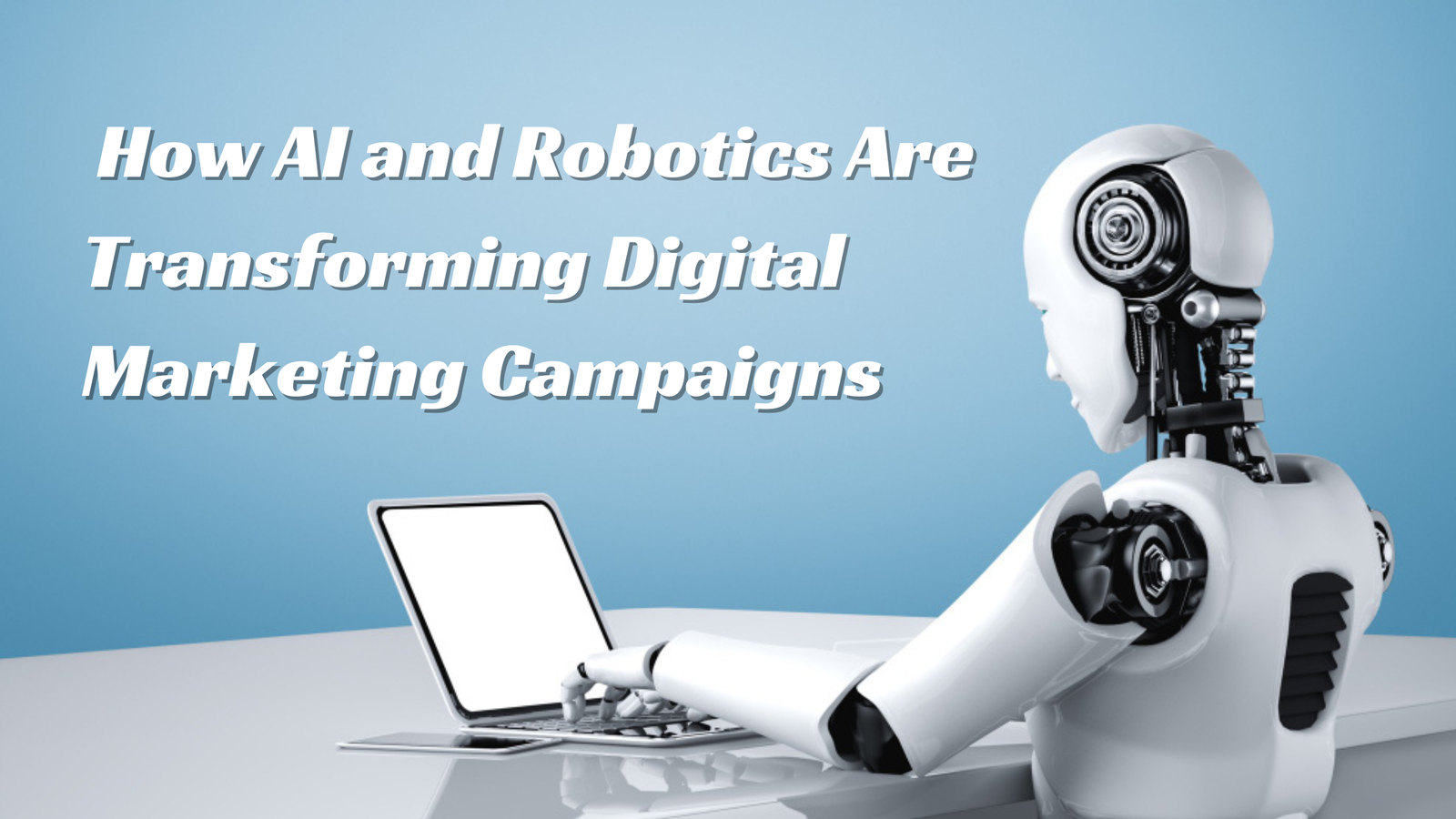Automating Engagement: How AI and Robotics Are Transforming Digital Marketing Campaigns
In today’s fast-paced digital landscape, integrating artificial intelligence (AI) and robotics is revolutionizing how businesses engage with their audiences. These innovative technologies automate various aspects of digital marketing campaigns, enabling marketers to streamline processes, personalize interactions, and enhance customer engagement. Much like the automation and optimization strategies employed in crypto prop trading, AI and robotics in digital marketing empower marketers to make data-driven decisions, deliver targeted messages, and adapt to changing consumer preferences. Let’s explore how AI and robotics transform digital marketing campaigns and revolutionise how businesses connect with their audiences.
Streamlining Campaign Management
One fundamental way AI and robotics transform digital marketing campaigns is by streamlining campaign management processes. AI-powered tools can automate various tasks, such as ad placement, audience targeting, and performance tracking, saving marketers time and resources.
Ad Placement and Audience Targeting: AI algorithms can analyze vast amounts of data to identify the most effective ad placements and audience segments, optimizing real-time campaign performance. For instance, Google’s AI-driven ad platform uses machine learning to improve ad placement decisions, ensuring that ads are shown to the right audience at the right time. This precision targeting increases ad spend efficiency and enhances marketing campaigns’ ROI.
Performance Tracking and Analytics: AI tools can continuously monitor and analyze campaign performance, providing marketers with real-time insights and recommendations. Platforms like Adobe Analytics leverage AI to track user behaviour and engagement across multiple channels, helping marketers understand what works and doesn’t. This allows for quick adjustments and improvements to ongoing campaigns, ensuring maximum effectiveness.
Robotic Process Automation (RPA): Robotics technologies, such as chatbots and virtual assistants, can automate customer interactions and support. For example, chatbots like Drift or Intercom can handle routine inquiries and tasks, such as answering FAQs, booking appointments, or processing orders, freeing marketers to focus on strategy and creativity.
Personalizing Interactions
AI and robotics enable marketers to personalize interactions with their audiences at scale, creating tailored experiences that resonate with individual consumers.
Data-Driven Customer Profiles: AI algorithms analyze consumer data, including browsing behaviour, purchase history, and demographic information, to create detailed customer profiles. Tools like Salesforce’s Einstein AI can segment audiences based on these profiles, enabling marketers to deliver highly personalized messages and recommendations.
Personalized Recommendations: AI-driven recommendation engines, such as those used by Amazon or Netflix, suggest products or services based on a consumer’s past purchases or preferences. This increases the likelihood of conversion and enhances the overall customer experience by making interactions more relevant and engaging.
Real-Time Engagement: Chatbots and virtual assistants can engage with consumers in real time, providing personalized support and assistance throughout the customer journey. For instance, Sephora’s chatbot on Facebook Messenger offers beauty tips and product recommendations based on user’s preferences and past interactions.
Optimizing Content Creation
AI and robotics are also transforming content creation processes in digital marketing campaigns. AI-powered tools can generate and optimize content based on audience preferences and engagement patterns, including ad copy, blog posts, and social media updates.
Content Generation: AI algorithms, such as those used by platforms like Copy.ai or Jasper, can generate high-quality content that resonates with target audiences. These tools use natural language processing (NLP) to create blog posts, ad copy, and social media content tailored to specific audience segments.
Trend Analysis and Keyword Optimization: AI tools like BuzzSumo and SEMrush analyze social media data to identify trending topics and keywords, helping marketers create timely and relevant content. This ensures that content reaches the target audience and engages them effectively.
Natural Language Generation (NLG): Robotics technologies, such as NLG algorithms, can automate the writing process, generating personalized content at scale. For example, Wordsmith by Automated Insights can produce detailed reports and articles based on data inputs, allowing marketers to scale their content efforts without compromising quality.
Enhancing Customer Support
AI and robotics technologies also enhance customer support and interaction in digital marketing campaigns. Chatbots and virtual assistants can provide instant support and assistance to consumers, answering questions, providing recommendations, and facilitating transactions.
Instant Support: AI-powered chatbots, such as those used by Zendesk or LivePerson, can engage with consumers in real time on websites and social media platforms, guiding them through the purchase process or resolving issues. This immediate assistance improves customer satisfaction and reduces the burden on human support teams.
Proactive Engagement: AI chatbots can analyze consumer inquiries and feedback to identify common pain points and areas for improvement. This information can inform future marketing strategies and product developments, ensuring businesses remain responsive to customer needs.
Multi-Channel Support: AI and robotics enable seamless customer support across multiple channels, including email, social media, and chat. This ensures a consistent and integrated customer experience, regardless of how or where customers engage with the brand.
Conclusion
AI and robotics are transforming digital marketing campaigns, enabling marketers to automate processes, personalize interactions, and enhance customer engagement. From streamlining campaign management and optimizing content creation to personalizing interactions and improving customer support, these innovative technologies are revolutionizing how businesses connect with their audiences online.
Much like the automation and optimization strategies in crypto prop trading, AI and robotics empower marketers to make data-driven decisions, deliver targeted messages, and adapt to changing consumer preferences. As technology continues to evolve, the role of AI and robotics in digital marketing will only continue to grow, offering new opportunities and possibilities for marketers to reach and engage with their target audiences in more meaningful and impactful ways. The future of digital marketing lies in the strategic integration of these advanced technologies, paving the way for more innovative, efficient, and effective marketing campaigns.

















